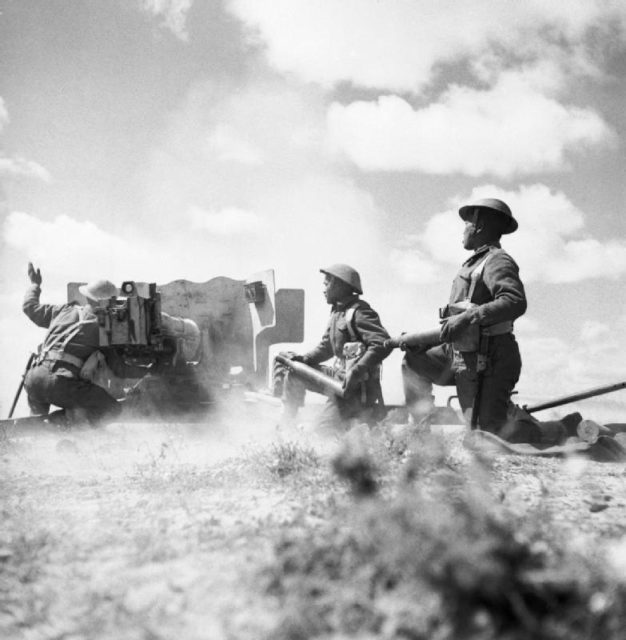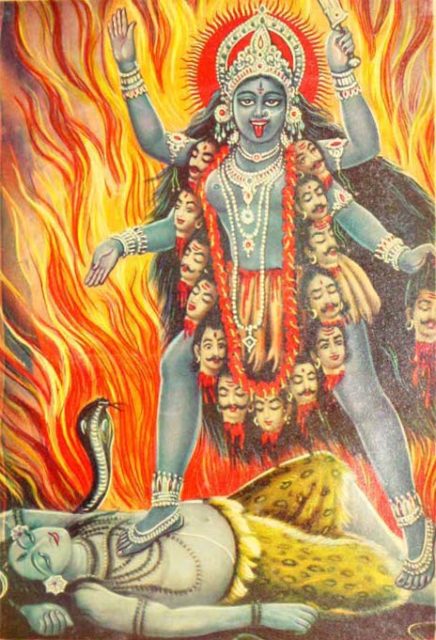The kukri is effective as a chopping weapon, due to its weight, and slashing weapon, because the curved shape creates a "wedge" effect which causes the blade to cut effectively and deeper. Because the blade bends towards the opponent, the user need not angle the wrist while executing a chopping motion. Unlike a straight-edged sword, the center of mass combined with the angle of the blade allow the kukri to slice as it chops. The edge slides across the target's surface while the center of mass maintains momentum as the blade moves through the target's cross-section. This gives the kukri a penetrative force disproportional to its length. The design enables the user to inflict deep wounds and to penetrate bone.
Utility
While most famed from use in the military, the kukri is the most commonly used multipurpose tool in the fields and homes in Nepal. Its use has varied from building, clearing, chopping firewood, digging, slaughtering animals for food, cutting meat and vegetables, skinning animals, and opening cans. Its use as a general farm and household tool disproves the often stated "taboo" that the weapon cannot be sheathed "until it has drawn blood".The kukri is versatile. It can function as a smaller knife by using the narrower part of the blade, closest to the handle. The heavier and wider end of the blade, towards the tip, functions as an axe or a small shovel.
Former Field Marshal Sam Manekshaw of the Indian Army once said: “If a man says he is not afraid of dying, he is either lying or he is a Gurkha.” Correct, but what is a Gurkha?
In 1814, the East India Company began making “excursions” into the Kingdom of Nepal, believing the Nepalis would be pushovers. They were wrong. Not only did their invasion hurt their pockets, but it also cost them dearly regarding personnel.
What malaria or desertion did not claim, the Gurkhas did. By the time the Anglo-Nepalese War ended in 1816 with a truce, the British had learned not to underestimate their foe. Quite the opposite, in fact. Others noticed it also, which is why various countries currently regularly recruit Gurkhas.
Originally from the Nepali district of Gorkha, they now come from all over the country. They are renowned for their service in the British Army and have fought in many contemporary wars forming part of the Coalition Forces in Iraq.
They are willing to serve the British (and other foreign nations) due to poverty – an unfortunate state of affairs that still exists today. “Service” does not do justice to what it is they do, which is why many have gone down in legend.

Gurung had repeatedly tried to join the British Indian Army. Being so short and puny even by Nepali standards, the authorities had declined. As WWII progressed, the British needed everyone, so the 23-year-old finally joined the British Indian Army in December 1940. What he lacked in size, he more than made up for regarding sheer determination. He earned himself a place as a rifleman in the 4th Battalion, 8th Gurkha Rifles.
In late April 1945, his battalion crossed the Irrawaddy River into Burma (now Myanmar) with the 89th Indian Infantry Brigade of the 7th Indian Infantry Division. Their mission was to attack Japanese positions north of the Prome-Taungup Road.

Late at night on May 12, most of the 4th Battalion, 8th Gurkha Rifles lay asleep. Rifleman Lachhiman was on guard duty. His small group was in a trench farthest away from the village when the attack came – cutting them off from the other Gurkha positions.
At least 200 Japanese soldiers tried to make their way to Taungdaw. To do so, they first had to pass through Lachhiman’s position. A grenade landed on the edge of his trench. He jumped up, grabbed it, and hurled it back with a satisfying boom!
A second landed in the trench inches away from his foot. He returned that one too. A third landed just outside the trench, so he lunged forward and picked it up as well. As he was about to throw it back, it exploded.
His right hand was pulverized, and his arm shattered while burning shrapnel pummeled his face and right leg. The explosion rocked two other soldiers off their feet sending them crumpling to the ground.
Half-blinded from the blast, his mouth severely bleeding, Lachhiman managed to scream the Gurkha’s ancient battle cry: “Jai Mahakali! Ayo Gorkhali!”
Kali is the Hindu goddess of night, death, time, and destruction. She wears a necklace of severed heads and a skirt of chopped off arms while she tramples her husband (the god Shiva) underfoot. She is not someone to mess with and probably explains why she is the patron goddess of the Gurkhas.

There was only him. All the others were either dead or too badly injured to fight. So he loaded his rifle with his left hand – not an easy task as his standard-issue bolt-action rifle was designed for right-handed use. Despite his wounds, he fired at point blank range each time the Japanese attacked, reloading and repeating the process for four hours.
Exhaustion, shock, and blood loss took their toll, but eventually, his comrades were able to relieve him. For the next three days and two nights, the Gurkhas were on their own, heroically fighting off the Japanese until more Allied troops arrived. The other Gurkhas were inspired by what Lachhiman had done.
When it was over there were 87 Japanese bodies around the trench. Thirty-one of them lay directly in front of the spot Lachhiman had defended single-handedly.
Doctors did their best for him, but could not save his right eye or right hand. Lord Louis Mountbatten, British Admiral of the Fleet, awarded Lachhiman the Victoria Cross (Britain’s highest military award for valor) on December 19, 1945.
Despite his injuries, Lachhiman continued to serve the 8th Gurkhas until 1947 when they were transferred to the newly independent Indian Army. He eventually settled in Britain where he died in 2010 – after successfully fighting the British government for the right for other Gurkha veterans like himself to live in Britain.
 Monument to the Gurkha Soldier outside the Ministry of Defense Building in London;
Monument to the Gurkha Soldier outside the Ministry of Defense Building in London;Despite his injuries, Lachhiman continued to serve the 8th Gurkhas until 1947 when they were transferred to the newly independent Indian Army. He eventually settled in Britain where he died in 2010 – after successfully fighting the British government for the right for other Gurkha veterans like himself to live in Britain.

THE GURKHA
SOLDIER
Bravest of the brave,
most generous of the generous,
never had country
more faithful friends
than you.
The treatment of Gurkhas and their families was the subject of controversy in the United Kingdom once it became widely known that Gurkhas received smaller pensions than their British counterparts. The nationality status of Gurkhas and their families was also an area of dispute, with claims that some ex-army Nepali families were being denied residency and forced to leave Britain. On 8 March 2007 the British Government announced that all Gurkhas who signed up after 1 July 1997 would receive a pension equivalent to that of their British counterparts. In addition, Gurkhas would, for the first time, be able to transfer to another army unit after five years' service and women would also be allowed to join--although not in first-line units--conforming to the British Army's policy. The act also guaranteed residency rights in Britain for retired Gurkhas and their families.
Despite the changes, many Gurkhas who had not served long enough to entitle them to a pension faced hardship on their return to Nepal, and some critics derided the government's decision to only award the new pension and citizenship entitlement to those joining after 1 July 1997, claiming that this left many ex-Gurkha servicemen still facing a financially uncertain retirement. An advocacy group, Gurkha Justice Campaign, joined the debate in support of the Gurkhas.
In a landmark ruling on 30 September 2008 the High Court in London decided that the Home Secretary's policy allowing Gurkhas who left the Army before 1997 to apply for settlement in the United Kingdom was irrationally restrictive in its criteria, and overturned it. In line with the ruling of the High Court the Home Office pledged to review all cases affected by this decision.
On 29 April 2009 a motion in the House of Commons by the Liberal Democrats that all Gurkhas be offered equal right of residence was passed by 267 votes to 246. This was the only first-day motion defeat for a government since 1978. Nick Clegg, the Liberal Democrat leader, stated that "this is an immense victory [...] for the rights of Gurkhas who have been waiting so long for justice, a victory for Parliament, a victory for decency." He added that it was "the kind of thing people want this country to do".
On 21 May 2009 Home Secretary Jacqui Smith announced that all Gurkha veterans who retired before 1997 with at least four years service would be allowed to settle in the UK. Actress Joanna Lumley, daughter of Gurkha corps Maj. James Lumley who had highlighted the treatment of the Gurkhas and campaigned for their rights, commented, "This is the welcome we have always longed to give".
A charity, The Gurkha Welfare Trust, provides aid to alleviate hardship and distress among Gurkha ex-servicemen.
On June 9, 2015, a celebration called the Gurkha 200, held at The Royal Hospital Chelsea and attended by members of the royal family, commemorated the bicentennial of the Gurkha Welfare Trust by paying tribute to Gurkha culture and military service.


Good history, and glad the Brits finally owned up to what they owed the Ghurkas!
ReplyDeleteHey Old NFO;
DeleteYou are welcome and I am glad that Britain is doing right by them, they have helped spread the glory of Britain all over the world and their reputation I am sure has chilled out more than one tinhorn wanna be
In the Falklands the Argentines heard the Ghurkas were coming and they abandoned their positions.
DeleteWhere can I get that style of Kukri Shown in the Picture
ReplyDeleteHey Sabre22
DeleteHere is the link https://nepalkhukurihouse.com/default/11-5-eagle-survival-rust-free-kukri.html About $155
Thank you found it
Delete